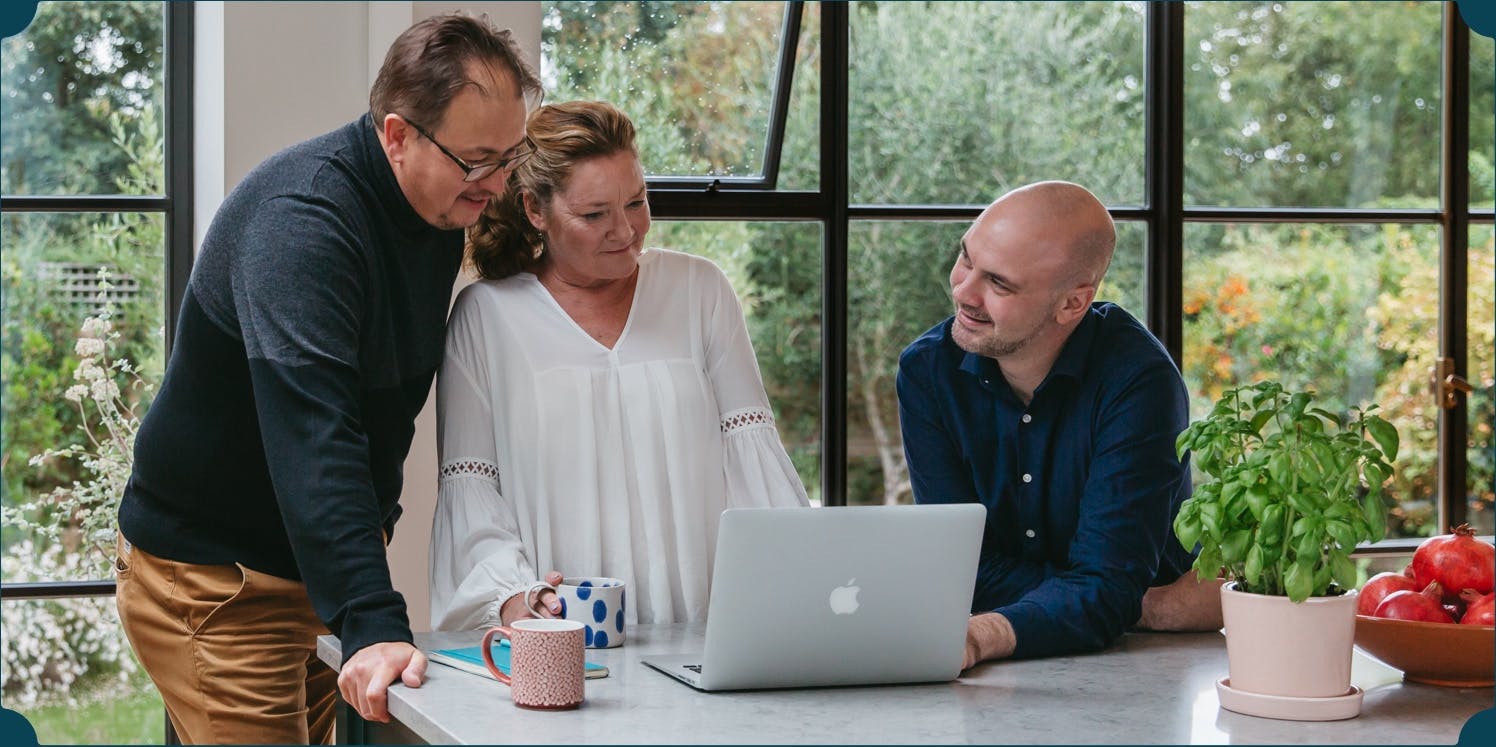
3-month checklist to moving home

So...just 3 months to go. Before jumping into the checklist, make sure you’ve had a look at our 6-month and 12-month checklist.
Property sales are complex, and we don’t sugarcoat the bricks. Use this checklist to simplify this confusing process and ensure your next move is smooth, orderly, and stress-free.
Your 3-month checklist
In the 3 months leading up to launching your home on the market, these are the key things to make sure you get done. Keep reading for more detail on how to do each of them and key things to watch out for.
- Work out your budget
- Organise your move with a mortgage advisor
- Fix your final bits and bobs around the house
- Choose an estate agent
- Instruct a solicitor
Work out your budget
There is no cheap way to move house, so a little bit of number crunching goes a long way. The typical costs for your spreadsheet include:
- Legal fees
- Estate agent fees
- Stamp Duty
- Conveyancing
- Removals
- Unexpected fees (it’s best to reserve £5,000 as a back-up fund).
You may also be liable to pay Capital Gains Tax if you’re selling a property that’s not your home, such as a buy-to-let property. Some costs, such as legal fees, may need to be paid upfront while others can be deducted from your sale proceeds.
Estate agent fees vary according to which type of agent you choose. You can expect to pay anything between 1 and 3% of your sale fee to a traditional high street estate agent, while online agents such as Yopa or Purplebricks charge a flat fee.
Stamp Duty is a sales tax paid by the buyer (but not the seller) after the purchase of a property. The tax is tiered, with rates ranging from 2% for properties valued between £125,001 and £250,000 to 12% for properties over £1.5m. You can use an online stamp duty calculator to work out how much you can expect to pay. You’re required to pay Stamp Duty within 30 days of completing on a property.
After this, you should have a rough idea of the costs involved. Costs like estate agent fees and stamp duty will change depending on the sale and purchase values, but you can assume a rough estimate.
Speak to a mortgage advisor
If like most of us, you need to borrow money to cover the costs of your new home, you’ll need a mortgage. You should speak to your current lender or review a statement to find out how much you owe on your existing mortgage.
If the mortgage is within a deal period with expensive fees to exit early, you might want to consider ‘porting’. This means transferring your current mortgage to your new home, but you effectively have to reapply for the mortgage and there is no guarantee you will be offered the same terms.
Instead of going straight to a lender, it’s sensible to speak to a mortgage advisor, sometimes referred to as a mortgage broker. The advantage of using a broker is that they can offer a wider range of products than a lender; they’ll scour the various options on the market to find the right mortgage for you and help you decide between porting or taking a new mortgage entirely. The earlier you do this, the more time you have to work out your budget for your new home.
Unless you’ve been recommended an advisor through friends or family, your estate agent should be able to help you find someone. But remember, your estate agent will probably receive a ‘kickback’ — a cash sum — for referring you, so you should always seek out independent reviews.
Your mortgage advisor can help you understand exactly how much you can borrow, which is an exciting step because you now have a better idea of your buying budget - how much you have to spend on your next home.
Once you have an agreement with a lender, you’ll be granted a ‘mortgage-in-principle’, which is an agreement that you can borrow the money to buy the property, subject to unforeseen hiccups like Japanese Knotweed spoiling the party.
Later down the line, when you agree on an exact purchase price on your new home, you’ll get your full mortgage offer which is usually valid for six months, so you must exchange and complete within this window. Although it is possible to extend, the terms might change.
Fix your final bits and bobs around the house
You’re running out of time to do the big jobs (like replace the bathroom suite) but there is still time to make sure your home sets a great first impression, and you’re not making the mistakes that put buyers off.
Repaint the front door — Nothing makes a good first impression like a freshly painted front door, so get some quality exterior paint for extra kerb appeal.
Gardening — If you’re handy with the trowel and shovel, you can try a bit of DIY landscaping to improve your garden’s appearance. At a minimum, keep it mowed.
Plaster cracks and signs of damp - Most of the time, these are nothing to worry about but they’ll put off buyers instantly. So long as the underlying issue is fixed, some simple decorating can make a big difference.
Red walls - a special shout-out to the red-wall club. We love a red wall, but unfortunately, most buyers don’t. Consider a coat (or 3) of a more neutral colour.
Choose an estate agent
Having a good estate agent on your side is really important for a smooth sale. Some of the main things to consider include:
- How will they market your property?
- Who will conduct the viewings?
- Will they provide advice on the home you are buying?
- Do they have chain managers to help your sale?
Get a realistic valuation
We recommend getting 3 estate agents around. Of course, one of them should be Nested but we’ll leave you to decide the other 2.
When they visit, they’ll provide a home valuation free of charge. We all love to be flattered, but just because you’re told your home is worth X amount doesn’t mean it will achieve that sale price. The short-term satisfaction of being told your home is worth a fortune will soon wear off once you’re forced to drop the price after weeks of no interest.
In reality, a home priced correctly will always sell. Any estate agent worth their salt will visit your home to understand the selling points, and produce a written valuation using comparable sales to justify the price.
Online vs. high-street agents
In recent years, the traditional high street estate agent has been confronted by a new sheriff in town — the online estate agent.
On the plus side, online estate agents generally offer a cheaper service if you’re on a budget. However, you’ll receive less support during the process, which means there is a higher chance of something going wrong and your deal falling through. And of course, local estate agents have the advantage of knowing their neighbourhoods inside out.
Whichever route you choose, at an absolute minimum you want your estate agent to list your property on one of the major portals — Zoopla or Rightmove. They should arrange professional photos, a well-written description, and settle on the right price in order to generate the most interest.
A good agent will have a dedicated chain manager, or ‘progressor’, who will manage your chain from offer to completion. Having a safe pair of hands can drastically reduce the likelihood of issues cropping up in your chain.
Callout box: Once you’ve chosen an agent they’ll need a key, so get one cut if you don’t have a spare.
Instruct a solicitor
You will need a conveyancer — a solicitor who specialises in property law — when you have an offer on a property accepted or you accept an offer for your home. Your conveyancer helps to oversee the legal process of the sale, from the draft contract to the eventual exchange and completion.
When you contact a conveyancer, they will provide a quote which details the breakdown of tasks and associated costs. You’re not legally required to use a conveyancer, but trying to do the paperwork yourself is asking for trouble!
Thinking of selling? Get in touch
Our friendly, local experts would love to talk to you about your home move